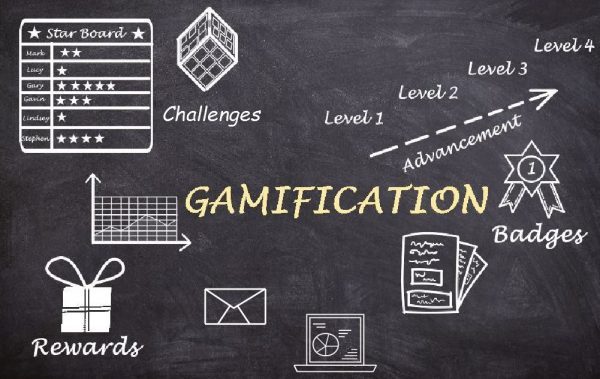The Module 3 assignment provides some practice in reading an original theorist. Albert Bandura is a central theorist within the field of social cognitive theory, and our task in this assignment was to summarize Bandura’s (2006) discussion of human agency and social cognitive theory. Social cognitive theory is a useful bridge between cognitive theory and constructivist theory.
We needed to focus our discussion very carefully, providing a clear thesis about our focus. Bandura’s discussion is highly theoretical, complex, and multi-leveled. We were not to try to cover all the details.
In completing this assignment, we were to start by taking notes on the reading, possibly in outline form. We were to have access to a good dictionary, as Bandura’s vocabulary is erudite. We were to then examine those notes carefully, to first develop a focus, an overall summary (1/2 -1 page), and then a clear explication of a specific aspect of Bandura’s discussion (2 ½ – 3 pages).
In this assignment, we needed to paraphrase Bandura’s points, and we could not use any direct quotations. We were to read the section in the APA Publication Manual on paraphrasing.
Also, we needed to write an abstract and keywords, and we were to read the sections in the APA Publication Manual. Even though the abstract is the first item that readers see, writers should write it after the paper is finished.
3 ½ – 4 double-spaced pages, excluding title page, abstract, and references.
Toward a Psychology of Human Agency
Frank Jamison
The Chicago School. Of Professional Psychology
EP600 The Psychology of Learning
Dr. Jessica Evans
January 29, 2023
Abstract
The first part of this paper summarizes Albert Bandura’s 2006 article Toward a Psychology of Human Agency. The four core properties of the social cognitive theory and its three modes of agency are covered. The social cognitive theory is then compared with alternate theories. Next, I delve deeper into the section, The Growing Spheres of Human Agency in Diverse Spheres of Life. In this section, I begin with definitions of human and personal agency, followed by the role of the Internet on human agency in education, health, business, organizational development, and politics. Finally, I conclude with a speculation on the role of Web 3.0 on human agency.
Keywords: human agency, personal agency, World Wide Web
In the introductory paragraph of Toward a Psychology of Human Agency, Bandura (2006)explains that the basis of the Social Cognitive Theory is human agency, which has four core properties. These properties are intentionality, in which people do things intentionally to realize a goal; forethought, in which people make future-directed plans to realize goals; self-reactiveness, in which people motivate and regulate themselves in the execution of their plans to realize a goal; and self-reflectiveness, in which people self-examine their functioning by reflecting on their efficacy, the soundness of their thoughts and actions, and the meaning of their pursuits, making corrective actions when required.
Bandura (2006) identifies three modes of agency that are distinguished in the social cognitive theory. These are individual, proxy, and collective agencies. With individual agency, people use their personal influence to affect their own functioning and environmental events. The proxy agency is defined as people influencing others to act on their behalf to reach a desired outcome. Collective agency is achieved when people work together, pooling their resources and knowledge to shape their future.
Alternate theories to the social cognitive theory are based on input, the processing of that input, and the resulting output. In these theories, as Bandura (2006) puts it, the biological machinery reacts to the input and produces an automatic response without conscious thought. On the other hand, the social cognitive theory sees consciousness and the ability to access and process information deliberatively to select, construct, regulate, and evaluate courses of action as its central tenet. As a result, people actively contribute to their activities rather than reacting to the environment autonomously.
Finally, Bandura (2006) goes on to explain the different types of agency, human, moral, and personal, as well as the concepts of biological programming, our contribution to the coevolution of the planet, culture’s effect on human agency, and our agentic adaptability.
The growing spheres of human agency in diverse spheres of life is an interesting topic. In contrast to personal agency, the belief or experience that one is the cause of their own thoughts and actions (Skowronski, 2019), human agency is described by Fandom as the “capacity for human beings to make choices and to impose those choices on the world.” The global reach of human influence transforming our nature, speed, and loci of communication is profound.
Education, communication, how we relate to each other, and how we conduct business and daily affairs have been drastically changed with the creation of the world wide web (Bandura, 2006). There hasn’t been such a cultural shift in how we communicate since the invention of the telephone. How we can now reach out to others, conduct business, engage in commerce, and even receive our education across the globe instantaneously has completely changed our society. The primacy of human agency can now be seen in almost every aspect of life.
In education, we can now attend the best schools on the planet without leaving our homes. This became even more prevalent with the advent of Covid-19. We can buy or rent electronic textbooks at discounted prices with the click of a mouse and read them on a tablet without the burden of a bulky physical copy. We can attend classes asynchronously at any time of the day and collaborate with students and teachers through email or video conferencing from disparate locations. The world is so different now than when I was in high school and in the U.S. Army.
For students with a heightened sense of efficacy and self-regulation, electronically delivered education will be a breeze. I, myself, have significantly benefited from distance learning. I have completed my bachelor’s and master’s degrees online and am working on my doctorate. I find this format more to my style of learning as I tend to get a little anxious around large groups of people.
Health is another field in which personal agency is making leaps and bounds. Instead of treating patients reactively, we are now becoming more proactive in preventative health care. We can choose various foods from a plethora of local supermarkets, decide whether to exercise and partake in lifestyles that promote good physical and mental health. We can visit websites and use applications to learn how to better care for ourselves, and now we can meet with our doctors via phone call or video conferencing from the comfort of our homes. I continue to personally benefit from seeing one of my doctors via telephone as a matter of choice. We are more in control of our health now than at any time in the past.
Covid-19 changed the landscape of our work lives. Businesses had to learn to operate with remote workers in a condensed period. People had to shelter in place, practice social distancing, and wear protective masks in public to conform to local and national laws. Now that the initial scare of the pandemic has passed, many employees are given the choice of working from home or in the office. In addition, many employment opportunities are 100% virtual, with all employee interactions occurring online through email and video conferencing. Self-efficacy is as great a boon in the virtual work environment as in the education environment.
Many innovative entrepreneurs benefit from the decreased cost of starting a business by choosing an online presence over brick-and-mortar. Without a mortgage or monthly rent, and with the reduced equipment required to run a business, these business owners can focus their dollars more on innovation and product development. In the early 2000s, I ran an online business while on disability, selling printed plans and specifications from a two-bedroom apartment to government contractors nationwide. Unfortunately, when the government started placing all its electronic plans and specs on a single website, my online search for government contract opportunities became mute.
Politically, people can now communicate with their congresspeople, meet with people with similar political interests, and voice their opinions on social media sites like Facebook and Twitter. For example, President Trump famously used Twitter to rally his constituents. Likewise, many people with political podcasts cater to one party or another online. I eagerly await the day we can cast our local, state, and federal votes online.
The Internet provides a vehicle for human agency to flourish and expand its reach. It has a liberating effect from the office to the school to our personal lives at home. We can meet with people with similar interests and access a global audience, mostly free of centralized institutional or governmental oversight. I say mostly because there are governments, such as China, that moderate the internet content they can see. Even here in the U.S., the internet is monitored by internet service providers to stifle the unlawful downloading of movies and music. The next generation of the world wide web, Web 3.0, will decentralize the internet and use peer-to-peer technology to keep big business from dominating what we see (Gillula, 2022). It takes much personal efficacy to put yourself out there in the cyber world, and there are many internet trolls out there to deal with, but wow! What a time to be alive!
References
Bandura, A. (2006). Toward a Psychology of Human Agency. Perspectives on Psychological Science, 1(2), 164–180. https://doi.org/10.1111/j.1745-6916.2006.00011.x
Fandom. (n.d.). Human Agency. Psychology Wiki. Retrieved January 29, 2023, from https://psychology.fandom.com/wiki/Human_agency
Gillula, J. (2022, November 30). What Is the Decentralized Web? 25 Experts Break it Down. Syracuse University Blog. https://onlinegrad.syracuse.edu/blog/what-is-the-decentralized-web/
Skowronski, J. J. (2019). Autobiographical Memory and the Self☆. In Reference Module in Neuroscience and Biobehavioral Psychology. Elsevier. https://doi.org/10.1016/B978-0-12-809324-5.21926-3
Assignment Grade: 47/50



